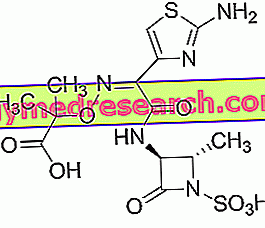
What is Adenuric?
Adenuric is a medicine that contains the active substance febuxostat. The medicine is available in yellow, capsule-shaped tablets (80 and 120 mg).
What is Adenuric used for?
Adenuric is used for long-term treatment of hyperuricemia (high levels of uric acid or 'urate' in the blood). Hyperuricemia can lead to the formation of urate crystals that are deposited in the joints and kidneys. When this condition occurs in the joints causing pain, it is called 'gout'.
Adenuric is used in patients who already show signs of a deposit of crystals, including arthritis (pain and inflammation of the joints) or tophi ('aggregates', larger deposits of urate crystals that can cause damage to joints and bones).
The medicine can only be obtained with a prescription.
How is Adenuric used?
The recommended dose of Adenuric is 80 mg once a day. The medicine can be taken either near or far from meals. Adenuric usually reduces the rate of uric acid in the blood in two weeks but the dose can be increased to 120 mg once a day if, after two to four weeks, the levels of uric acid in the blood remain above 6 mg per deciliter. Gout attacks may still occur during the first few months of therapy. It is therefore recommended that patients take other medicines to prevent gout attacks for at least the first six months of treatment with Adenuric. Treatment with Adenuric should not be interrupted if an attack occurs.
How does Adenuric work?
The active ingredient in Adenuric, febuxostat, reduces the formation of uric acid. It works by blocking an enzyme called 'xanthine oxidase' which the body needs to produce uric acid. By reducing the production of uric acid, Adenuric can reduce the rate of uric acid in the blood and keep it low, preventing the deposit of crystals. As a result, it can reduce the symptoms of gout. Maintaining low levels of uric acid for a sufficient period of time can also lead to the reduction of tophi.
How has Adenuric been studied?
The effects of Adenuric were first tested in experimental models before being studied in humans.
The efficacy of Adenuric was tested in two main studies involving a total of 1, 834 patients with hyperuricemia and gout.
The first study, conducted on 1, 072 patients, compared the efficacy of three doses of Adenuric (80, 120 and 240 mg once a day) with that of placebo (a sham treatment) and allopurinol (another medicine used for the treatment of hyperuricemia). The study lasted six months.
The second study compared two doses of Adenuric (80 and 120 mg once a day) with allopurinol for a period of one year in 762 patients.
In both studies, allopurinol was used at a dose of 300 mg once a day, except in the case of patients with kidney problems taking 100 mg. The main measure of effectiveness was the number of patients whose three endpoints were less than 6 mg / dl. Blood uric acid levels were measured every month.
What benefit has Adenuric shown during the studies?
Adenuric was more effective than allopurinol and placebo in reducing the rate of uric acid in the blood.
In the first study, 48% of patients taking 80 mg Adenuric once a day (126 of 262) and 65% of patients taking 120 mg once a day (175 of 269) had uric acid levels below 6 mg / dl in the three final measurements. The same result was observed in 22% of the patients taking allopurinol (60 out of 268) and in none of the 134 patients taking placebo.
Similar results were observed in the second study after one year.
What is the risk associated with Adenuric?
The most common side effects of Adenuric (seen in 1 - 10 patients in 100) are headache, diarrhea, nausea, rash and abnormal liver values. There may also be an increased risk of certain side effects affecting the heart and blood vessels, particularly in patients with previous heart problems. For the full list of all side effects reported with Adenuric, see the Package Leaflet.
Adenuric should not be used in people who may be hypersensitive (allergic) to febuxostat or any of the other substances.
Why has Adenuric been approved?
The Committee for Medicinal Products for Human Use (CHMP) concluded that Adenuric was more effective than allopurinol in reducing the rate of uric acid in the blood but that it could carry a greater risk of side effects on the heart and blood vessels. The Committee decided that Adenuric's benefits are greater than its risks for the treatment of chronic hyperuricaemia in conditions where urate deposition has already occurred. The committee recommended that Adenuric be given marketing authorization.
Other information about Adenuric:
On April 21, 2008, the European Commission issued a marketing authorization for Adenuric, valid throughout the European Union. The marketing authorization holder is Ipsen Pharma.
The full EPAR for Adenuric can be found here.
Last update of this summary: 06-2009



